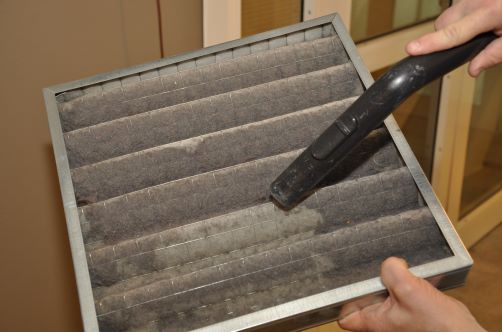

Air quality is crucial for maintaining a healthy and comfortable indoor environment. One essential component in ensuring good air quality is your air filter. You may have heard of MERV ratings, but do you really know what they mean and why they matter for your air filter? In this blog post, we’ll break down the importance of your filter’s MERV rating and help you understand how they can affect your indoor air quality.
1. Understanding the Basics: What is MERV?
MERV stands for Minimum Efficiency Reporting Value. It’s a rating system that measures the effectiveness of an air filter in removing airborne particles from the air that passes through it. The higher the MERV rating, the more efficient the filter is at capturing these particles.
2. The MERV Rating Scale: What Do the Numbers Mean?
MERV ratings typically range from 1 to 20. Here’s a quick breakdown of what each range means:
- MERV 1-4: These filters are basic and provide minimal filtration. They are typically found in residential systems and capture larger particles like dust and pollen.
- MERV 5-8: Filters in this range offer better filtration and can capture finer particles, including mold spores and pet dander.
- MERV 9-12: These filters are more efficient at capturing smaller particles like smoke and bacteria. They are often used in commercial and industrial settings.
- MERV 13-16: Filters in this range are highly efficient and can remove very tiny particles, including viruses and odors. They are suitable for hospitals and other critical environments.
- MERV 17-20: Filters with MERV ratings in this range are the most efficient and can capture extremely small particles, such as smoke and viruses. They are used in specialized applications like cleanrooms and pharmaceutical manufacturing.
3. Why Does the MERV Rating Matter?
The MERV rating of your air filter matters for several reasons:
- Improved Air Quality: A higher MERV rating means your filter can capture a wider range of particles, leading to cleaner and healthier air in your home.
- Health Benefits: Effective filtration can reduce allergens and irritants in the air, making it easier for people with allergies and respiratory issues to breathe comfortably.
- Protecting Your HVAC System: A good air filter can help extend the life of your heating and cooling system by preventing dust and debris from clogging it.
4. Choosing the Right MERV Rating
Selecting the right MERV rating for your air filter depends on various factors, including your specific needs, your HVAC system, and the environment you live in. Here’s a simple guide to help you choose:
- For Most Homes: A MERV rating between 8 and 13 is usually sufficient to maintain good indoor air quality and protect your HVAC system.
- If You Have Allergies: Consider a MERV rating of 11 or higher to capture more allergens and provide relief for allergy sufferers.
- High-Performance Systems: If you have a high-efficiency HVAC system, consult your manufacturer’s recommendations for the ideal MERV rating to avoid restricting airflow.
- Specialized Environments: In environments with specific air quality requirements, like healthcare facilities or cleanrooms, consult with an HVAC professional to choose the appropriate MERV rating.
5. Maintenance is Key
It’s not enough to choose the right MERV rating; you must also maintain your air filter regularly. A clogged filter can decrease the efficiency of your HVAC system and reduce the effectiveness of your air filter. Be sure to follow the manufacturer’s guidelines for replacement and change your filter on schedule.
Final Thoughts
Understanding MERV ratings is essential for maintaining good indoor air quality and protecting your HVAC system. Selecting the right MERV rating, based on your specific needs and environment, is a crucial step in ensuring clean and healthy air in your home. Regular maintenance and filter replacement are also essential to keep your system running efficiently. So, take the time to choose the right MERV-rated air filter and breathe easier in your comfortable, clean, and healthy indoor environment.


